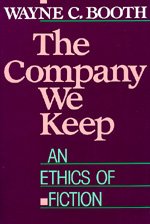Life at the University of Chicago
Moses threw himself into his new position at the University of Chicago when he arrived in the fall of 1962, teaching courses on nineteenth-century French prints and “French Impressionism and its Aftermath.” He also led other classes in the humanities, creating waves among the other instructors when he refused to continue teaching Mark Twain’s classic The Adventures of Huckleberry Finn because of the novel’s treatment of race. In his 1988 book The Company We Keep, the eminent literary critic Wayne Booth, who began teaching at the university the same year as Moses, recounted the incident. Moses stated that he was deeply troubled by Twain’s portrayal of the character Jim, a Black man fleeing slavery, and argued that the novel’s distorted views of race were damaging to Black and white students alike. Booth acknowledged his initial discomfort with Moses’ (for the time) radical critiques and his later acceptance of their legitimacy, emphasizing the visionary nature of Moses’ interpretation.
In a series of memos to university administrators written in 1964, Harrie Vanderstappen, the acting chair of the Department of Art, enthused that Moses’ research and teaching were “outstanding” and that he had gained the wide respect of professors and students alike. In November 1964, the faculty unanimously voted to promote him to the rank of Assistant Professor of Art and of Humanities. When Moses adopted his new title in December, he joined a small cohort of past and current Black faculty members at the university.

